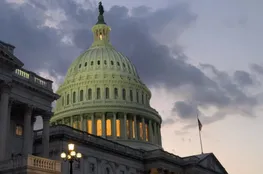Hawaiʻi Governor Targets Tax Credits, Asset Forfeiture Bills For Possible Veto
Also making the list are bills stipulating the labeling of Māmaki tea and making as yet unidentified line-item reductions to the state budget. Measures that would end tax credits for film production and amend the state law that allows law enforcement to seize property such as houses and cars in criminal investigations are under veto consideration by Hawai‘i Gov. Josh Green. Green also said he is looking to make line-item reductions “based on program feasibility, stability, and sustainability” to the state budget , although he did not say what those might be. The rationale is to help the state enter the fiscal year “with a balanced budget and sound financial plan.” The list of 19 bills, released late Friday afternoon , was whittled down from more than 300 measures passed during the 2025 regular session of the Hawai‘i Legislature, which adjourned on May 2. By law, the governor was not required to release the veto list until June 24 and he has until July 9 to make a final decision. In a press release he said he wanted to provide additional time “to continue ongoing discussions with key stakeholders concerning implementation and impact.” “Due to the record-setting number of bills enrolled to the governor this legislative session, potential changes to the state’s federal funding and reduced revenue projections from the Council on Revenues, additional time to analyze bills will ensure each bill is given the nuanced, thoughtful consideration it deserves,” according to the press release. Green and House and Senate leaders say the Legislature will likely hold a special session this fall in order to make any necessary adjustments to the state budget based on what the Trump administration and U.S. Congress agree to in the federal budget that faces a Sept. 30 deadline. Economists have described President Donald Trump’s budget plan, which would cut entitlement programs while adding to the national debt, has injected tremendous uncertainty into the economy. The plan is compounded by the president’s tariffs on imports and the work of the Department of Government Efficiency to eliminate waste, fraud and abuse in government spending. Senate leaderships didn’t respond to a request for comment on the veto list. House Speaker Nadine Nakamura noted it will be a few weeks before a final decision has to be made. “The Governor has until July 9 to veto any of the bills identified in his notice. In the meantime, the House will review the measures listed to evaluate their impacts and determine appropriate next steps.”
Local Film Production Favored House Bill 796 requires that income tax credits that either exist as of Dec. 31 or are planned for renewal after that time be in effect for only five years. And if the Legislature decides to keep some of the tax credits beyond that time, they would have to be slashed by one-third. The bill was crafted by Rep. Kyle Yamashita, the chair of the House Finance Committee until he was deposed last month by his colleagues, who replaced him with Rep. Chris Todd. In his press release, Green said he was concerned about ending the credits. He called them critical to supporting economic development and diversification, “particularly within growing and emerging sectors.” “Categorically sunsetting income tax credits will not only disincentivize future investors from doing business in Hawai‘i, but will destabilize existing businesses that currently rely upon these tax credits,” he added. Green signaled he wanted to help local television and movie production during an interview earlier this week with Hawaii News Now’s “Spotlight Now” program , noting that the live-action version of “Lilo & Stitch” had just opened to major critical and box-office success. “I want to see the film industry continue to increase,” said Green. He also said he supports the local solar industry: “I want to see a lot of additional tax breaks if we can for renewable energy. It’s important.”
Also on the possible veto list is House Bill 126 , which would allow seizures, or asset forfeiture, of property by law enforcement if someone has been charged with a crime. Green told “Spotlight Now” that he has been talking with David Tarnas, chair of the House Committee on Judiciary and Hawaiian Affairs, after the bill was amended to allow seizure only when people have been convicted. Currently, state law places little restriction on seizures. State Attorney General Anne Lopez has argued that the measure would seriously hamper investigations. That is the argument that comes from Honolulu Prosecutor Steve Alm as well. In his veto intent press release, Green agreed that asset forfeiture is a deterrent against and punishment for criminal activity. “The one-year deadline to return seized property for which the owner has not been charged with a covered offense, significantly weakens the efficacy of this dual deterrent and punishment,” he said. “Many covered offenses, including felonies, often involve complex investigations that extend beyond a year, rendering this bill’s one-year deadline for law enforcement to file charges unrealistic. Seized property can serve as critical evidence in investigations, and its return before an investigation’s completion would severely hamper the investigation as well as the administration of justice at large.”
House Bill 496, which was aimed at protecting Hawaiian māmaki tea from imitations, also made the veto intent list after some Māmaki tea producers expressed concern that the measure could actually put companies out of business. “While the intent of this measure is to ensure consumer protection and reliable Made in Hawai‘i labeling, the bill imposes overly strict labeling requirements that could harm small businesses and māmaki producers who responsibly blend leaves from multiple sources,” according to Green’s press release.
Solitary Confinement Green also signaled he intends to veto Senate Bill 104 , which attempts to limit the use of solitary confinement in state prisons and jails. The bill would also have required the state Department of Corrections and Rehabilitation to publicly report on the use of solitary or “restrictive housing.” The bill would specifically restrict the use of solitary confinement for inmates who are younger than 21 or are pregnant, and would create a “restrictive housing legislative working group” to recommend new policies, procedures and laws to govern the use of solitary. Green’s announcement explains the state already has policies in place the govern the use of solitary or “restrictive housing” in keeping with national standards. “Rather than improve the health and safety of those in the department’s care, the implementation of certain requirements proposed in this bill will jeopardize the safety, security and good governance of the department’s facility, negatively impacting inmates,” according to the governor’s notice. Kat Brady, coordinator of the Community Alliance on Prisons , said research shows excessive use of the punishment can do lasting psychological damage to prisoners, and a number of Hawai‘i prisoners including Daisy Kasitati and Diamond Simeona-Agoo have committed suicide in solitary confinement. Brady has been trying for years to persuade state lawmakers to restrict the use of solitary in Hawai‘i prisons and jails, and said she intends to continue that effort.
Over 300 bills were reviewed by state departments and agencies, the attorney general and the governor in the last month, according to the administration. The governor can sign the bills, veto them or let them become law with out his signature. As of Friday, 200 bills had become law with another 131, including the 19 on the veto list, awaiting consideration , according to the Legislature’s website. The governor leaves the island Sunday for official business in Washington, D.C., and a planned family vacation before returning to Hawai‘i on June 24. Lt. Gov. Sylvia Luke will be in charge until then. Civil Beat’s reporting on the Hawai‘i State Legislature is supported in part by the Donald and Astrid Monson Education Fund. Sign up for our FREE morning newsletter and face each day more informed. Now more than ever, local news is a vital community resource: connecting neighbors, uplifting voices and sharing information that empowers people to make informed decisions in their everyday lives. By supporting Civil Beat with a monthly or one-time donation , you can help power our growth and nonprofit mission. Make a gift today.
























